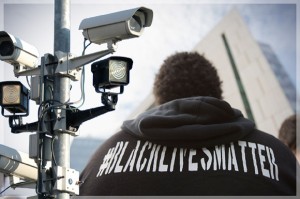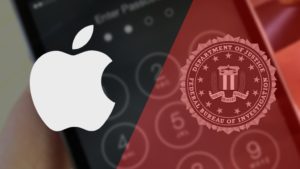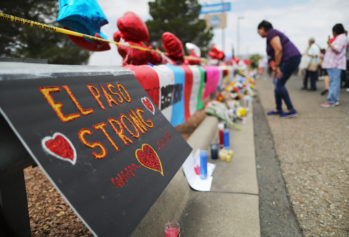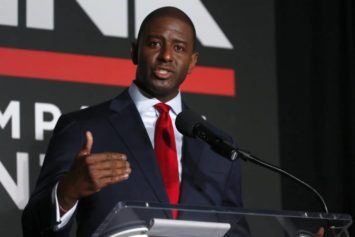
(Credit: Reuters/Mario Anzuoni/Richard Susanto via ShutterstockPhoto montage by Salon)
The battle between the FBI and Apple over data encryption is all about black and white. This is about someone’s iPhone, but ultimately it is about Martin Luther King and the Black Panther Party, and Black Lives Matter. This is about the ability of the government to conduct surveillance on Black movements and Black people in general, a 20th-century COINTELPRO updated and upgraded for the 21st century.
This recent controversy stems from the iPhone of Syed Rizwan Farook who, along with his wife, shot 14 people to death in San Bernadino, California this past December. A federal judge ordered Apple to assist the FBI in unlocking Farook’s iPhone, but the company has objected, arguing that to do so would violate privacy rights and provide the FBI with a “back door” to allow for government spying of the public. As Mother Jones reported, Apple refused on the grounds that it would have to invent new software, essentially a master key that would imperil the privacy of millions who own the iconic cellphone. Now, the FBI claims it may have found a way to crack open the phone without Apple’s help, and has convinced a judge to postpone a hearing in the case for two weeks.

Siding with Apple in what has developed into an epic encryption battle are tech companies, civil liberties groups such as the ACLU, and Black Lives Matter activists.
As Malkia Cyril wrote in The Guardian, if the FBI wins this case, Black people stand to lose a great deal, even as Black voices on the issue have been relatively silent up until mow.
“While seemingly about protecting national security – the same rationale used to justify 20th century surveillance of MLK, the Black Panther Party and others – this case is about much more,” Cyril wrote. “It could establish a legal precedent used to suppress the growing movement for black lives that is deposing public officials and disrupting the daily assault on black people in cities across the country.”
The child of a Black Panther, Cyril said the police invoked “safety” and “national security” when they monitored her family, so she knows what is at stake for communities of color and the “persistent threat of police spying” against them.
She added, “I knew that we became targets of government surveillance because my mother advocated for black bodies abandoned and abused by state violence.”
The fight for racial justice in the 21st century, Cyril added, must include a fight for the First and Fourth Amendments to the U.S. Constitution. And activists have begun using an iPhone app called Signal, which encrypts all phone calls and text messages, and protects the right to organize.
Cyril, who works for the Center for Media Justice, joined a March 3 letter sent to federal magistrate judge Sheri Pym, who oversees the Apple-FBI case. In the letter, activists — which also included Beats, Rhymes & Relief; The Gathering for Justice; Justice League NYC; Shaun King, Senior Justice Writer, NY Daily News; Opal Tometi, Co-Founder of Black Lives Matter and Director of Black Alliance for Just Immigration (BAJI) — said that while they are all saddened over the San Bernadino shooting, “we do not believe fear should distract from the need to protect civil liberties.”
Further, the letter’s signatories noted that they, as civil rights advocates, are targets of government surveillance for no other reason than their advocacy and service to the underrepresented.
“As Rev. Jesse Jackson recalled last week, one need only look to the days of J. Edgar Hoover and wiretapping of Rev. Martin Luther King, Jr. to recognize the FBI has not always respected the right to privacy for groups it did not agree with,” the letter said, invoking COINTELPRO, which even the FBI admitted was a violation of the First Amendment.
In a March 17 commentary in Time, Rev. Jackson wrote that he stands with Apple for civil rights. The civil rights leader expressed his concern that if the government prevails against Apple, it will facilitate government efforts to “hack” into the activities of human rights groups in the name of national security, as was the case with the civil rights movement in the 1950s and 1960s.
“The FBI infiltrated the Southern Christian Leadership conference and used wire-tapping and personal threats against Dr. Martin Luther King — with the support of other U.S. government agencies — to discredit him and the civil rights movement,” Jackson said.
While the Black community had been on the sidelines on the issue of data encryption and government surveillance, this is changing, as much is at stake for the Black Lives Matter movement and a new generation of racial justice activists.


